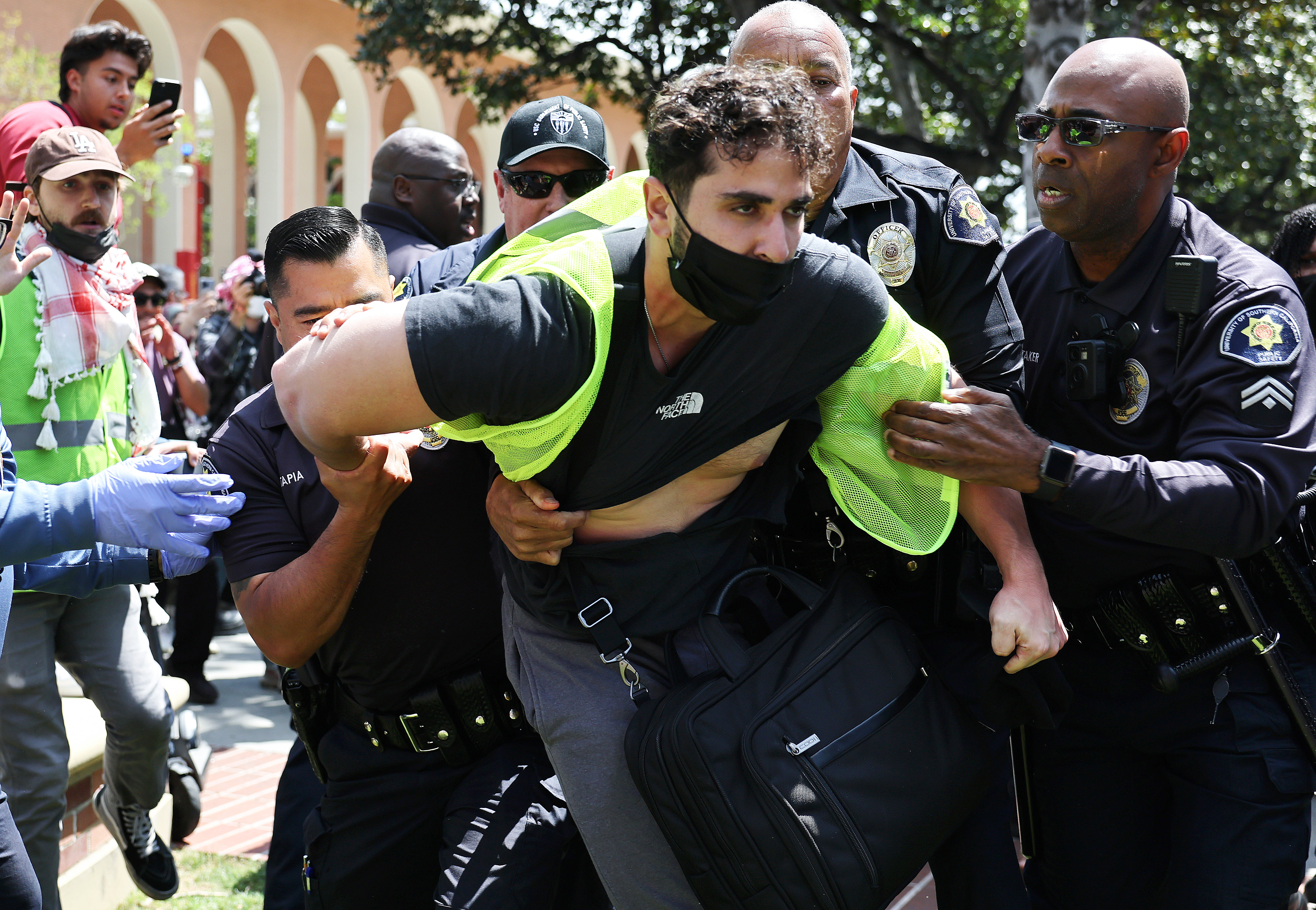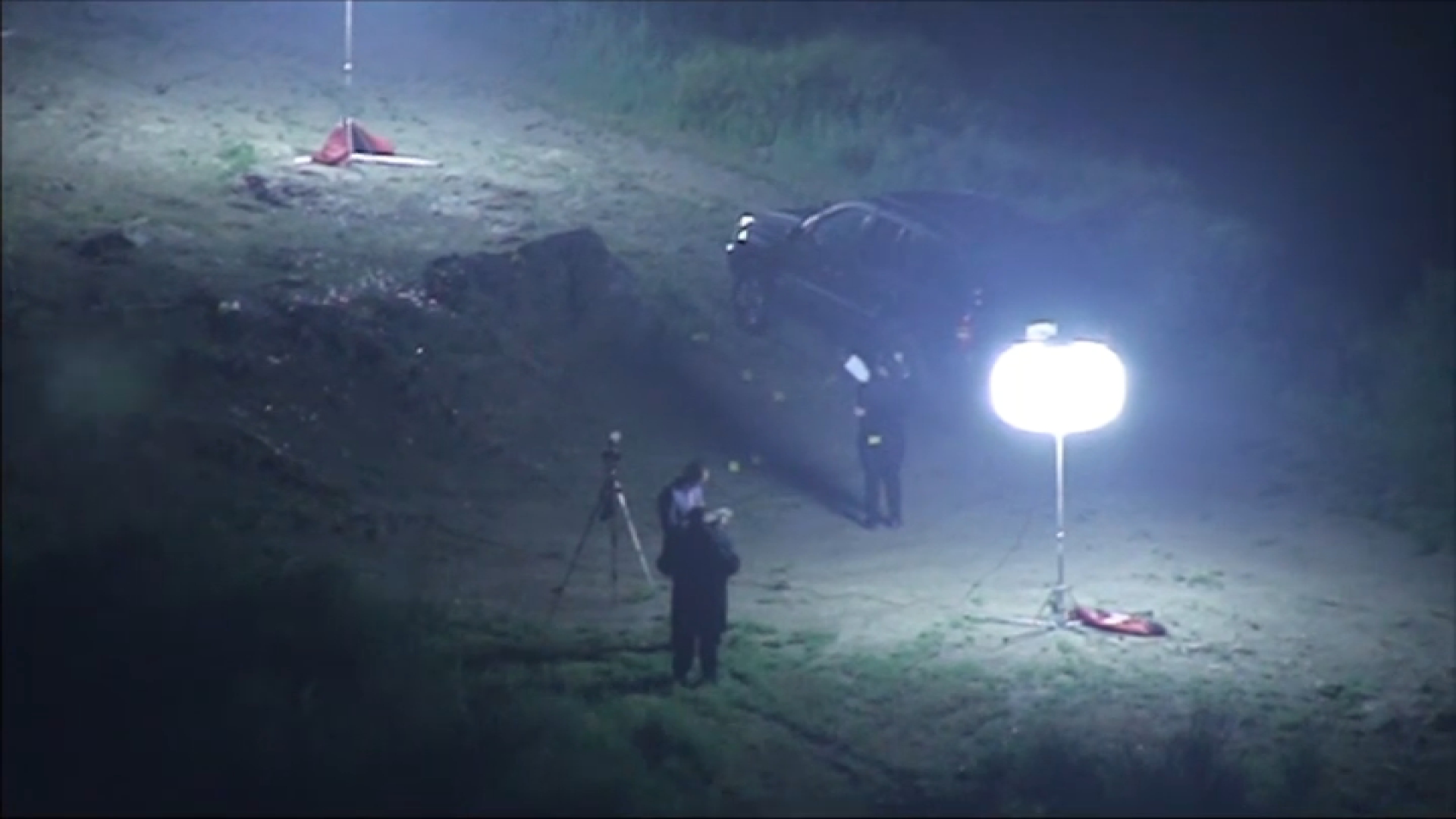A grand jury has been convened to hear evidence against Dr. George Tyndall, the former USC gynecologist accused of misconduct by scores of former patients, according to a report published Wednesday.
The panel began calling witnesses last month, two sources familiar with the case told the Los Angeles Times. On Wednesday Times reporters observed the sex crimes prosecutor overseeing the Tyndall investigation in conversation with clinic employees outside the grand jury room in a downtown Los Angeles criminal courthouse.
One of the clinic employees was summoned into the grand jury room for more than 90 minutes while others were told to return later to testify, The Times reported.
A woman who worked with Tyndall for several years told The Times said she was called before the grand jury last month.
"They had a lot of questions. A lot of questions," the woman told The Times. A prosecutor told her not to discuss the proceedings, she said.
It is somewhat uncommon for state prosecutors to seek a grand jury indictment, according to The Times. Most suspects are charged in court papers and prosecutors then lay out their case through witness testimony at a public preliminary hearing. The accused are permitted to present a defense and call their own witnesses.
It's up to a judge to decide whether there is enough evidence for a trial.
News
Top news of the day
Grand jury proceedings, however, are secret, and in many cases defendants and their attorneys do not even know they are occurring. There is no cross-examination of witnesses.
Former sex crimes prosecutor Robin Sax, who worked in the Los Angeles County District Attorney's Office for a decade, told The Times grand juries can allow prosecutors to assess the credibility of victims discreetly.
"It becomes almost (the district attorney's) own mock trial," Sax, who is now in private practice, told The Times. "If (a victim) can't make it with just the D.A. asking questions, then you are going to have serious issues with a defense attorney asking questions."
Grand juries can also speed the progress of cases, Patrick Dixon, a former head of special operations and major crimes in the Los Angeles County District Attorney's Office.
"Typically a grand jury hearing that takes a week might take two, three or four weeks in a preliminary hearing because of cross-examination," Dixon told The Times.
There was no immediate response to a request for comment made Wednesday night to USC.
USC announced in October that it had agreed in principle to a $215 million class-action settlement with women who claim they were sexually abused by Tyndall.
Tyndall and USC have been sued by hundreds of alleged victims, many of whom claim they were inappropriately fondled or photographed by Tyndall under the guise of gynecological exams. Many have also accused him of making sexually charged comments during the exams.
Alleged victims have contended that the university received numerous complaints of Tyndall's alleged sexually abusive behavior dating back to at least 1988, and actively and deliberately concealed Tyndall's actions.
Attorneys for some victims have argued that following an internal investigation of complaints against Tyndall in 2016, the university paid Tyndall a substantial financial settlement so he would quietly resign last year.
USC officials have denied any coverup, and Tyndall has denied any wrongdoing.



